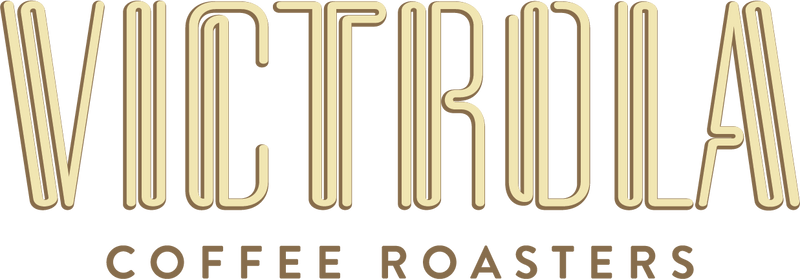Sourcing Practices
Here at Victrola, we’re passionate about serving great coffee, and serious about sourcing ethically purchased and sustainably produced green coffees.
We source a wide array of coffees – from different parts of the globe, utilizing different processing methods, different varietals, etc. – with the goal of showcasing the full spectrum of what coffee is and can be. These days, it’s nearly impossible to capture every great coffee that comes our way, so we focus on a few things to help guide us.
Relationships
Building relationships is the most important aspect for us. We trust our importer partners to help connect us with great coffee producers around the world. We’re able to engage with and purchase from some of the most exciting producers out there, and make every effort to build personal, lasting relationships with these producers.
We have been purchasing from Luis Alberto Balladerez – owner of several farms and mills in the Nueva Segovia region of Nicaragua – for nearly a decade. His careful precision with how his mills process coffee has given confidence to other producers in the region of Nueva Segovia to entrust him with their coffees as they are wet- or dry-processed. Luis Alberto’s own farms are no less intentional, having lots divided by altitude and varietal, allowing him to offer a wide range, and to focus on how to best grow each varietal. This results in Cup of Excellence competition winners, and overall being able to sell his coffees at a higher, more sustainable price.
Another lasting relationship we’ve had the pleasure of building is with Denis Teruel and his farm, Finca las Brisas, in El Cielito, Honduras. Since Denis’s coffee first came to us in 2014, we’ve been purchasing the entirety of his yield. And every year, it gets better and better. Thanks to this partnership, Denis Teruel was able to purchase solar dryers to dry his coffee at his farm. This solar dryer – a clear plastic tarp that covers the coffee from above much like an open greenhouse – has allowed Denis to maintain consistent quality across his entire harvest. What’s more is that Denis started at roughly two bags of yield each year, and is now producing 10-12 bags each year - and we’re still purchasing it all.
Every relationship that we are able to build puts our producer partners in stronger standing and ensures that we have fantastic coffees to share with you.
You may notice that some of our coffees are not Fair Trade certified. The reason for this is two-fold: 1) It can prove quite costly for all parties involved to get certified. 2) We already go above and beyond the Fair Trade minimum price of just $1.40 / lb. ($1.70 / lb. if also certified Organic) as of the writing of this article. These numbers were last determined by Fair Trade USA a decade ago, in 2011, and often these prices barely leave any profit for the producers.
Growing Practices
We source only coffees that are grown with respect and regard to the environment. Many of the coffees we purchase are shade-grown – a proven way to help sustain and encourage the growth and preservation of the ecological foundation surrounding the farm. None of our producers use chemical treatments or pesticides, and some are certified Organic.
Many producers that we work with utilize renewable agriculture practices.
Some of the coffees we source are not officially certified Organic. There are a multitude of reasons behind this. Some producers face economic barriers to getting these certifications, as they can be costly. Many are already going above and beyond what Organic certification requires. And, logistically, certifying can be tricky - every facility that touches that coffee along the process must be Organic certified.
Exciting
The last thing we want is for you to have a cup of coffee that isn’t intriguing to you. That’s why we serve coffees alongside each other that taste significantly different, come from different areas in the world, and have varying processing methods.
Right now, there are many efforts being made in the specialty coffee producing industry – experimenting with fermentation methods, soil content, and even an effort to trace and name Ethiopian coffee varietals, traditionally referred to as Heirloom Varietals because they are so intertwined and go back hundreds of years.
It’s our goal to be able to represent these progressive efforts in what we offer to our customers, while also adhering to our values of quality and maintaining relationships with these producers.
